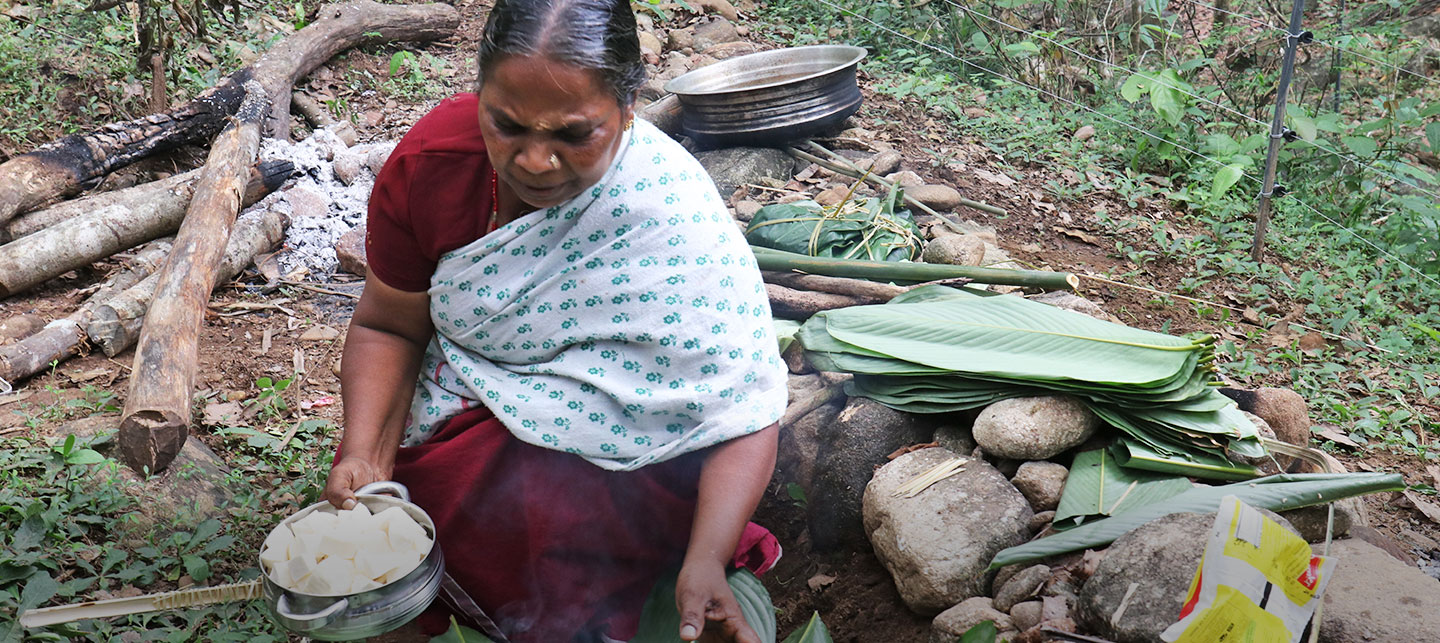Indigenous Culinary Practices, Food from Forest
Kerala’s indigenous cuisine blends wild ingredients, ancient techniques, and sustainability – a timeless bond with nature
In the lush forests, winding rivers, and mist-covered hills of Kerala, the indigenous communities have cultivated a unique culinary tradition that is deeply intertwined with the land they inhabit. For centuries, these Adivasi groups — including the Kattunayakans, Kurumbas, Irulas, Paniyas, Kanis, Kurichiyas, and Muthuvans — have relied on the forests and surrounding ecosystems for their sustenance, developing a way of life that is in perfect harmony with nature. Their diets are shaped by the seasons and the ever-changing rhythms of the land, incorporating wild tubers, edible ferns, mushrooms, bamboo shoots, medicinal plants, and fresh-caught fish — all foraged from the forests with a deep respect for ecological balance.
The culinary practices of these communities are rooted in sustainability, with each ingredient carefully selected to support both their health and the environment. Foragers expertly gather a wide array of wild foods, including honey from tribal honey hunters, which holds both nutritional and medicinal value. Wild fruits like njaval (wild jamun) and kaattu maanga (wild mango) are harvested fresh, preserved for later use, or incorporated into dishes that connect them to their heritage. Meat and fish, when available, are often prepared using simple yet effective methods, such as smoking, roasting, or slow-cooking in bamboo hollows and stone ovens, ensuring that the natural flavors are not masked, but celebrated.
In addition to wild edibles, the indigenous communities of Kerala incorporate a wealth of medicinal plants into their cooking. Ingredients such as wild ginger, turmeric, and rare forest greens not only enhance the taste of their dishes but also serve as natural remedies that have been passed down through generations. Traditional preservation techniques, such as fermenting, drying, and smoking, are used to extend the life of food, making it possible to sustain their communities during monsoon seasons and lean periods.
Cooking, in these communities, is a communal activity, often centered around a wood-fired hearth or prepared in earthen pots, which infuse the food with earthy aromas and flavors. Meals are typically simple yet nourishing, reflecting the deep connection between the people and the land they care for. These practices highlight a profound understanding of nature’s cycles, focusing on minimal waste and ensuring the regeneration of resources.
Today, as the world grows more interested in sustainable food systems, Kerala’s indigenous culinary traditions are being celebrated through community-based tourism. Visitors now have the opportunity to explore these ancient practices by participating in foraging walks, traditional cooking workshops, and farm-to-table meals, immersing themselves in the stories and techniques that have sustained these communities for centuries. By supporting these tourism initiatives, travelers not only learn about the rich history and culture of Kerala’s indigenous people but also help preserve their culinary heritage for generations to come.
By honoring these food traditions, we can celebrate a way of life that is both nourishing and environmentally responsible, offering a model for how food can be a force for ecological balance, health, and cultural resilience. Through the continued recognition of Kerala’s indigenous culinary heritage, we ensure that their timeless wisdom continues to thrive, providing inspiration for those who seek to reconnect with nature through the food they eat.








